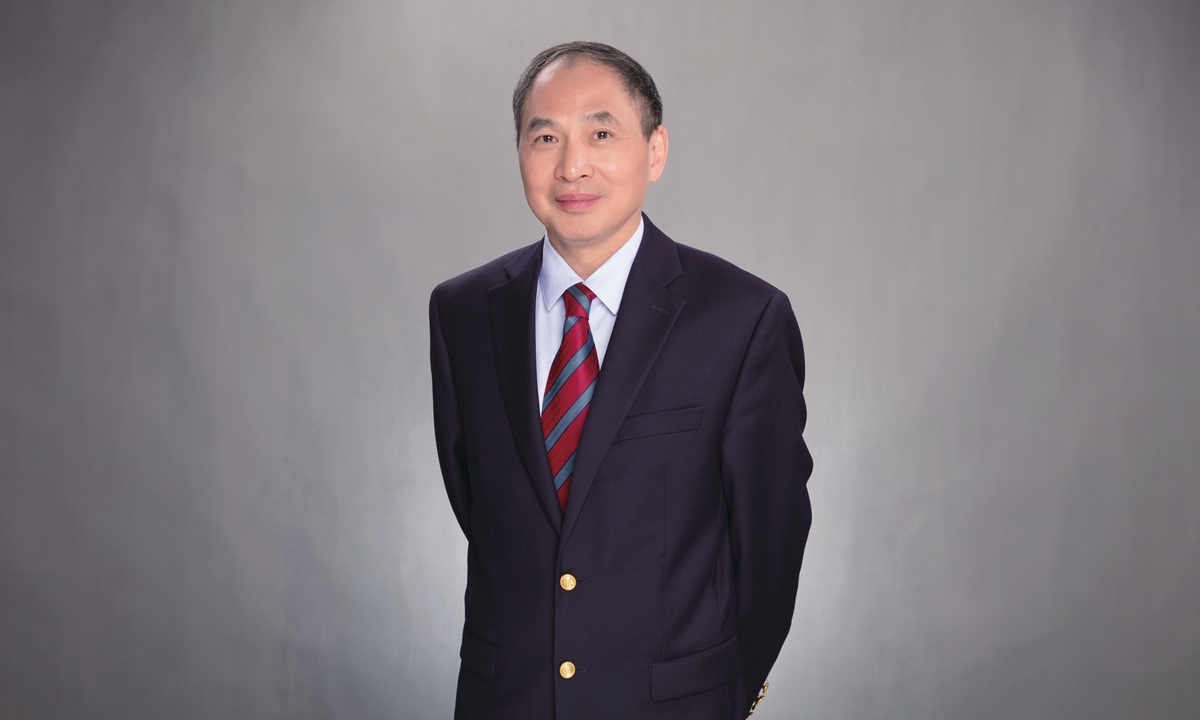
Zheng Yongnian Photo: Courtesy of Zheng
The reason why the Communist Party of China (CPC) can succeed is that it has truly realized that China's modernization is modernization of the country's traditions rather than a process transplanting the Western modern stuff to China, said Zheng Yongnian, a Chinese political scientist and political commentator, in an exclusive interview with the Global Times Friday, a day after the sixth plenary session of the 19th CPC Central Committee ended.
A landmark resolution on the major achievements and historical experience of the CPC's 100 years of endeavors was adopted at the sixth plenum. Zheng, acting dean of the School of Humanities and Social Science and founding director of the Advanced Institute of Global and Contemporary China Studies, in the Chinese University of Hong Kong, Shenzhen, believed the resolution will serve as a cornerstone leading China into future and could enlighten other countries and regions of the world to seek a development path based on their own history. "Many people are stuck in Utopia hoping there will be a system that can solve all problems, but this is useless,"Zheng said, adding that every country and region should start from their own history to find ways for future, citing failures of countries in the Middle East as well as Myanmar that tried to copy the Western-style democracy.
China emphasizes that democracy should suit a country's civilization, culture and national conditions. Jiang Jinquan, director of the Policy Research Office of the CPC Central Committee, said at Friday's press conference on the sixth plenary session of the 19th Central Committee of the CPC that democracy is not a patent of the West, nor can it be defined by the West.
Zheng believed that every country has the right to seek democracy that suits itself most, "just as President Xi Jinping once said, you only know if the shoes fit by wearing them yourself," Zheng said.
Developing whole-process people's democracy and ensuring it is the people who run the country was emphasized in a communiqué released after the sixth plenum. The concept of "whole-process people's democracy" was first used by President Xi when he visited Shanghai in November 2019. "In China, the CPC is the dominant political force, but it emphasizes 'whole-process people's democracy,' which means the whole society has the right to broadly participate in the whole process of policymaking," Zheng said. This is different from the West, and beyond the West's comprehension as the West always uses their own paradigm to observe China, Zheng noted, adding that the Western democracy emphasizes "one person, one vote,"but ordinary people has no influence on policymaking.
The communiqué emphasized the importance of upholding the CPC's overall leadership, the Central Committee's authority, and its centralized, unified leadership. Some Western media have made an issue of China's efforts in strengthening "centralized, unified leadership,"accusing China of becoming more "authoritarian." Zheng dismissed such accusations, saying they are wrong and lack basic understanding of China. The scholar said centralization is not a concept of China's tradition, but a Western concept. He added that "all modern states are centralized, and in some aspects, the Western political systems are much more centralized." Be it the presidential system or parliamentary system, after a Western leader comes to power, almost all members of the ruling team, including overseas ambassadors, are nominated and appointed by the leader and will act around the leader's governing goals, he emphasized.
He said as a country with a large population, multiple ethnic groups and big regional gaps, China needs a centralized leadership, but China's political centralization doesn't affect social diversity. China has social, economic, cultural and religious diversity.
The Party's landmark resolution also motioned Taiwan island. It stated that China must firmly oppose foreign interference and separatist activities that seek "Taiwan independence," saying China has maintained the initiative and ability to steer cross-Strait relations. Zheng said that this sends a strong warning to the US, which has been challenging China's red lines with its "salami tactics."
"The Taiwan question is not a matter of the ruling party, but a question of the whole Chinese nation," Zheng said. He emphasized that it's the whole Chinese nation's will to solve the Taiwan question, therefore, the US can never win if a war breaks out over the Taiwan question.
China used to maintain strategic patience on the Taiwan question, but given the fact that the US keeps encouraging Taiwan secessionists with salami tactics to challenge the mainland's red lines, China has no room to retreat and must seize the initiative when it comes to the Taiwan question, Zheng noted. "China must convey to the US clearly that the Taiwan question is none of the US business, we don't need too much strategic patience when it comes to the Taiwan question,"Zheng said.




